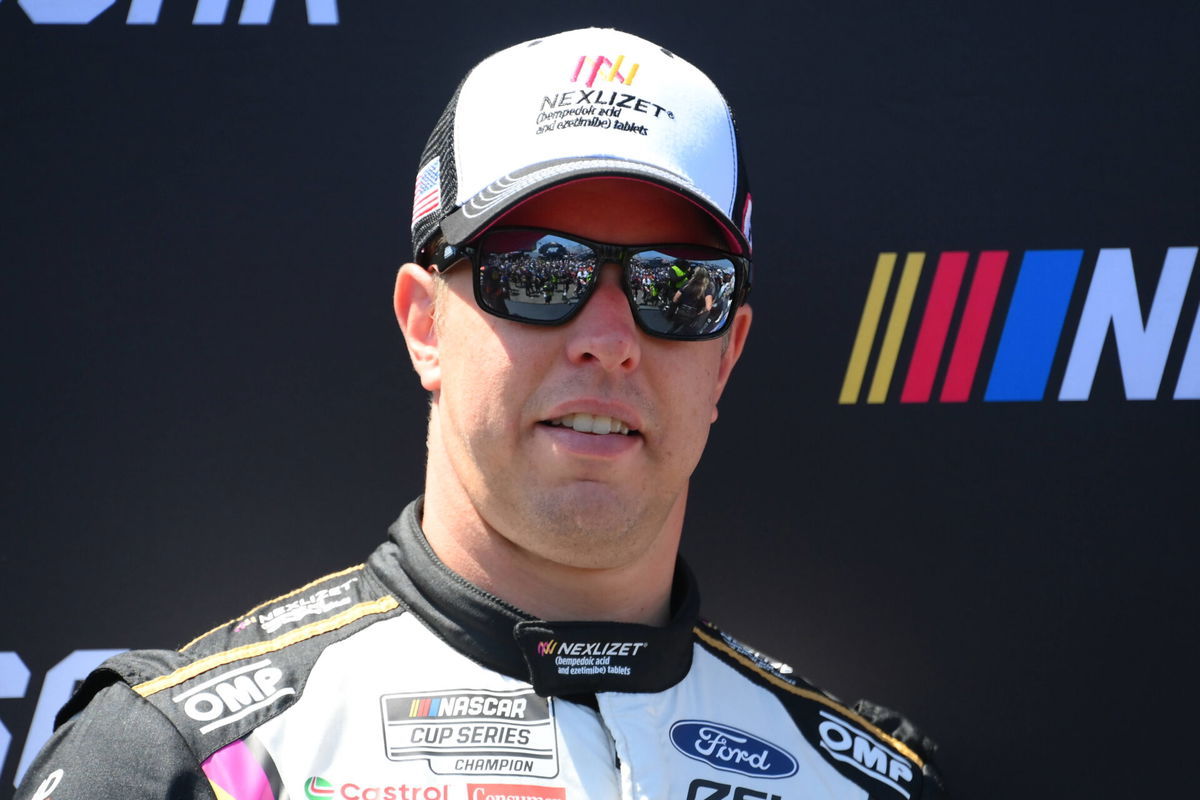
Imago
NASCAR, Motorsport, USA Go Bowling at The Glen Aug 10, 2025 Watkins Glen, New York, USA NASCAR Cup Series driver Brad Keselowski 6 prior to the Go Bowling at The Glen at Watkins Glen International. Watkins Glen Watkins Glen International New York USA, EDITORIAL USE ONLY PUBLICATIONxINxGERxSUIxAUTxONLY Copyright: xRichxBarnesx 20250810_jhp_ai8_0188

Imago
NASCAR, Motorsport, USA Go Bowling at The Glen Aug 10, 2025 Watkins Glen, New York, USA NASCAR Cup Series driver Brad Keselowski 6 prior to the Go Bowling at The Glen at Watkins Glen International. Watkins Glen Watkins Glen International New York USA, EDITORIAL USE ONLY PUBLICATIONxINxGERxSUIxAUTxONLY Copyright: xRichxBarnesx 20250810_jhp_ai8_0188
The 2025 NASCAR season has reignited a longstanding debate about the sport’s growth trajectory. While television ratings remain steady, averaging 3.07 million viewers for Cup Series races on FOX and FS1, attendance and the in-person fan experience continue to lag behind other major American sports. Drivers and executives have voiced growing concerns about this trend. Last fall, Joey Logano warned, “We can’t rely on the same fans forever. We have to keep giving them reasons to show up.”
Watch What’s Trending Now!
This sentiment highlights the increasing pressure on NASCAR to evolve its business model. Adding to the conversation, Brad Keselowski—RFK Racing co-owner and active driver—has delivered a pointed critique and outlined a precise plan of action ahead of the playoffs and championship.
Since its debut in 2004 and revision in 2014, NASCAR’s playoff format has drawn criticism for undervaluing season-long consistency. Chase Elliott expressed this frustration in 2023, saying, “You can win the whole season and one bad race at Phoenix can take it all away.” This discontent persists as several championship contenders face elimination despite strong regular-season performances.
Meanwhile, ongoing charter negotiations and the upcoming return of new manufacturers, like Ram in the Truck Series, have underscored the importance of financial sustainability. In this context, Keselowski has identified three critical business lessons NASCAR must embrace.
Keselowski’s bold plan for NASCAR
In a recent interview on “12 Questions” with Jeff Gluck, Brad Keselowski addressed some critical challenges facing NASCAR. His first point focused on how race tracks sustain themselves. “A lot of these tracks you go to, if you come on a Tuesday, three weeks before or after the race, there are maybe three people working there. There’s nobody around,” he explained. Without diversified revenue streams beyond race weekends, tracks struggle to generate the capital needed to reinvest in fan experiences.
Instead, they rely heavily on NASCAR’s media rights, which brought in $820 million last year. Keselowski argues that these subsidies inadvertently prevent tracks from improving the fan experience, damaging attendance and NASCAR’s broader reputation.
Keselowski’s second critique targeted the championship format. “The whole playoff thing has to go away,” he said bluntly. “Having 10 races that are more important than the other 20-something is unhealthy for the sport. It’s demeaning to the other tracks and races.” He highlighted how the playoff schedule directly competes with the NFL and college football in the fall, dampening NASCAR’s postseason impact. This perspective resonates with fans and sponsors alike, concerned that relegating much of the season to secondary status might alienate the sport’s loyal base.
Finally, Keselowski called for automakers to re-engage with NASCAR. “I’d look at new OEMs (Original Equipment Manufacturers) as very important—a rising tide that lifts all boats,” he said. Currently, the Cup Series features Chevrolet, Ford, and Toyota, and a limited manufacturer pool restricts competition and marketing opportunities. A new entrant would inject investment into teams, tracks, and advertising, amplifying NASCAR’s visibility. With Ram’s return confirmed for the 2026 Truck Series, Keselowski views the moment as a critical opportunity for NASCAR to broaden OEM participation.
Together, Keselowski’s insights extend beyond business mechanics to address NASCAR’s survival in a fiercely competitive entertainment market. Without modernized tracks, a fairer playoff format, and increased manufacturer support, the sport risks stagnating while rivals continue to innovate.
Keselowski calls Larson the best NASCAR driver
Known for his candor, Keselowski also weighed in on NASCAR’s talent pool. Asked to revisit his 2010 pick for the sport’s most gifted driver, Keselowski noted that Kurt Busch—the first choice—has since retired. Moreover, the criteria for talent have evolved significantly.
“Talent used to be measured by sheer speed and car control, but now it’s also about precision and execution,” he said. Today, maximizing pit road entries, excelling on restarts, and mastering defensive driving are equally vital. “It’s more procedural now.” Speed alone no longer separates the elite the way it once did.
Nonetheless, if Keselowski were to apply his previous standards today, he believes one driver stands out: “Kyle Larson. He has the most raw speed of anyone in the garage.” Larson’s versatility and ability to perform across diverse tracks and series have solidified his reputation as one of motorsport’s most adaptable stars.
Yet Keselowski also praised Joey Logano, whom he sees as embodying the “complete package.” From restarts to racecraft, Logano’s adaptability makes him, in Keselowski’s view, the most well-rounded driver on the circuit.
While Keselowski praises the elite talent shaping today’s NASCAR, his candid critique highlights a broader urgency—NASCAR must modernize its business model, overhaul the playoff format, and attract new manufacturers to remain competitive. Without embracing these pivotal changes, the sport risks stagnation as fans and rivals alike seek fresh innovation and excitement.


